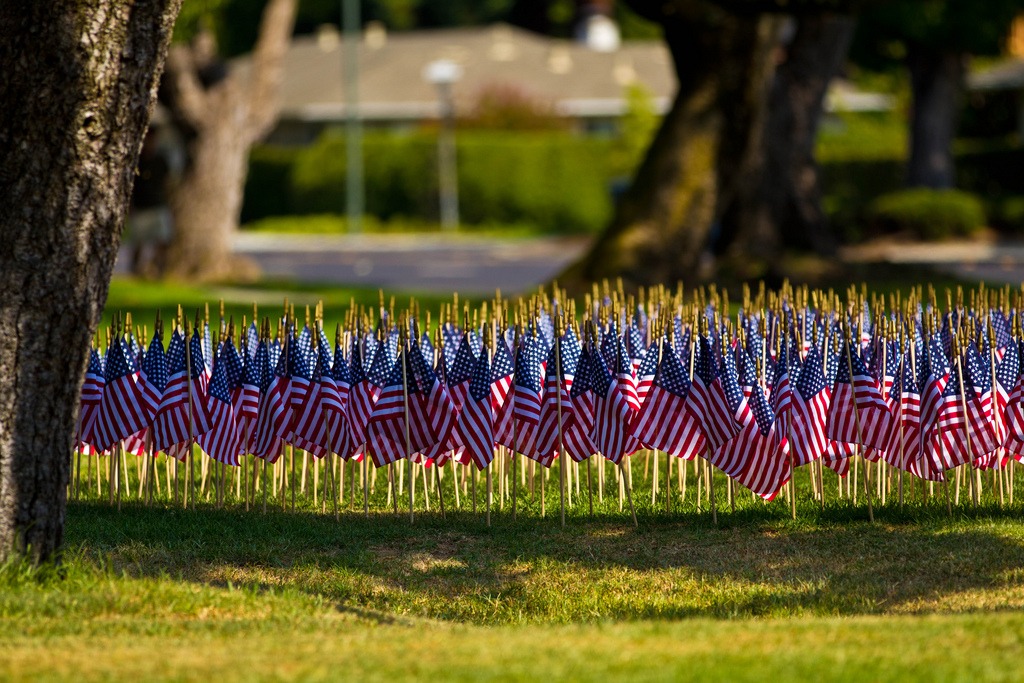This past week, two 9/11-themed promotions became fodder for the hungry internet outrage machine.
In San Antonio, a mattress retailer aired an ad for a 9/11-themed promotion. “What better way than to remember 9/11 than with a Twin Tower sale?” asks an enthusiastic woman in the local television spot. “Right now you can get any sized mattress for a twin price!” At the end of the ad, the woman and her companions topple two “towers” made of mattresses. The woman giggles, clutches her chest, and says, “We’ll never forget.” The store was forced to temporarily close after its owners were inundated with death threats. The ad’s female star, Cherise Bonanno, gave a tearful mea culpa on Inside Edition.
In Florida, one Walmart set up a 9/11 promotional display made of Coke boxes in the shape of the Twin Towers and the American flag. The store later removed the display after photos of it provoked similarly apoplectic reactions online. “It comes across as a tacky cash grab” wrote Eric Pfeiffer at GOOD Magazine.
The sanctimonious critiques of these two “tasteless” ads are baffling—if only because the performative outrage surrounding them seems to betray a fundamental shortness of historical memory. These ads are not aberrations; 9/11 was commercialized from the start in order to sell Americans everything from commemorative plates to a set of Geneva conventions-violating foreign policies. These recent promotions are merely continuing a 15-year tradition that’s still going strong.
9/11 was considered untouchable as comic fodder, yet perfectly acceptable as a marketing scheme.
The rubble from the Twin Towers and the Pentagon hadn’t even stopped burning before companies started selling “United We Stand” stickers and crying eagle T-shirts. Flag-buying became socially mandatory. Suddenly, the red, white, and blue could be found hanging from houses, affixed to car antennae, and slapped on bumpers in magnet form. The culture industry eagerly took up the patriotic mantle, churning out drivel like Darryl Worley’s ballad “Have You Forgotten?”— all the while banning anything that remotely smacked of dissent, including Rage Against the Machine’s entire oeuvre and all songs about aviation. President George W. Bush encouraged Americans to “go shopping more.” Czech-born writer Milan Kundera had famously equated kitsch with totalitarianism, and the post-9/11 political and cultural turn seemed to reliably bear out his observation.
In even worse taste than the kitschification of 9/11 was the way the deaths of nearly 3,000 people were used as a political argument to justify two internecine wars and a regime of torture and indefinite detention. 9/11 became a logic of its own—an explanation for why the United States was now allowed to commit foreign atrocities and domestic intrusions on privacy.
At the same time, the notion of what was in good or bad taste with regard to 9/11 was cynically deployed to justify stifling any criticism of the country or its policies. When Susan Sontag wrote, in The New Yorker, that 9/11 was “an attack on the world’s self-proclaimed superpower, undertaken as a consequence of specific American alliances and actions,” and suggested that “a few shreds of historical awareness might help us understand what has just happened, and what may continue to happen,” The Weekly Standard published a takedown of her “sheer tastelessness.”
To say nothing of the 9/11 memorial museum! A full-priced adult ticket costs $24. (If you’re a 9/11 family, however, you get free admission for life.) Once inside, after checking out the charred wreckage of a New York City ambulance, makeshift memorials ripped from Manhattan street corners, a collage of victims’ faces, and paintings inspired by the attacks, you can stop by the gift shop to purchase a 9/11 Memorial indigo T-shirt, a 9/11 Memorial leather wallet, a bottle of 9/11 Memorial wine, or, until recently, a 9/11-themed commemorative cheese plate.
The mattress ad seems to be almost a gleeful satire of the way 9/11 was exploited and commodified. “Never forget” became a sort of incantation, and one oft repeated in such absurd contexts, so that it lost its meaning. 9/11 was considered untouchable as comic fodder, yet perfectly acceptable as a marketing scheme—that is, so long as such a marketing scheme was duly lachrymose. There’s something satisfying about watching an ad that so blithely takes post-9/11 sentiment to its logical conclusion, as if it were a sketch from Mr. Show. As for the Walmart soda display, it is indistinguishable from any of the other commercialized 9/11 schlock.
If you’re going to get up in arms about the commodification of 9/11, that ship sailed a long time ago. Building the Twin Towers out of mattresses or Coke Zero boxes is merely continuing a tradition of poor taste that rose, like a kitschy phoenix, out of the rubble at Ground Zero. To paraphrase Cherise Bonanno, what better way to remember 9/11 than by buying mattresses or some Diet Coke? At least no one was tortured.
Colette Shade is a writer living in Baltimore.







i hope lets not use the 9/11 for any other purposes. Lets use the date to mourn our fellow Americans who were victims of the attack